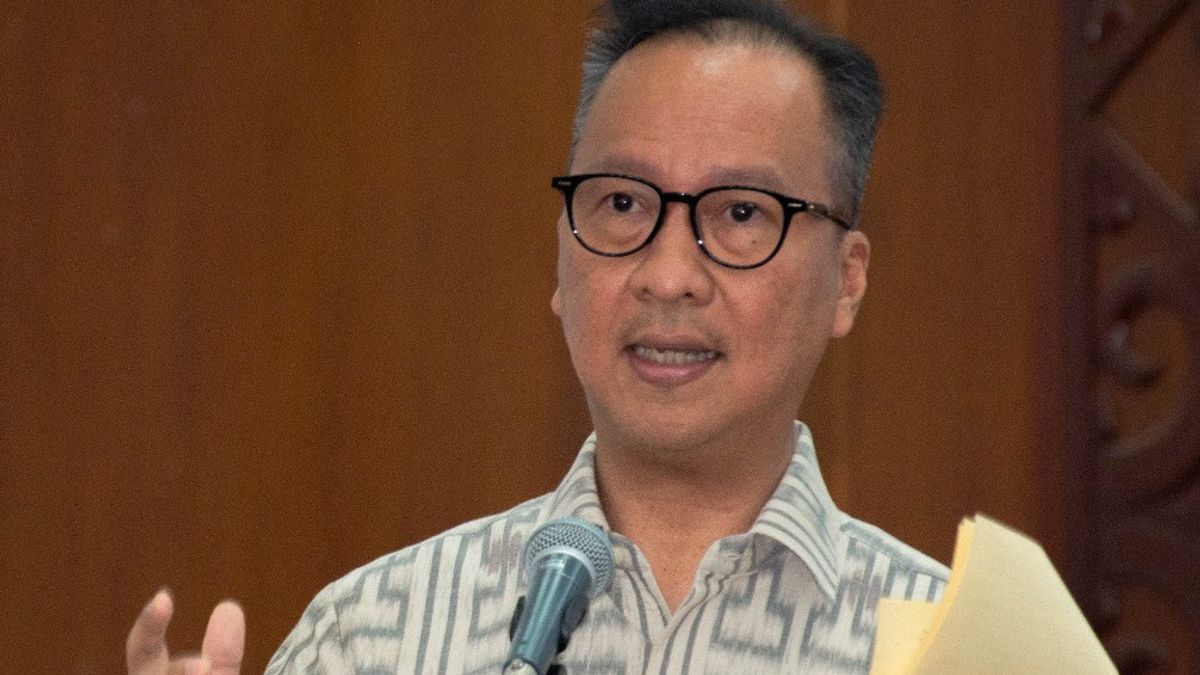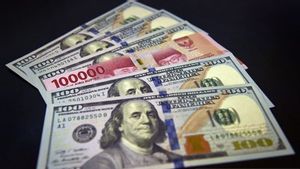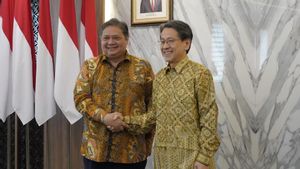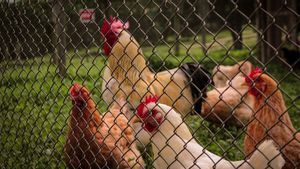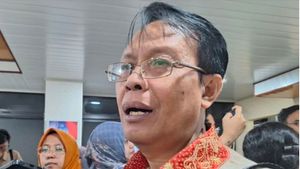JAKARTA - The Ministry of Industry (Kemenperin) said that the issuance of Government Regulation (PP) Number 36 of 2023 concerning Foreign Exchange Export Results from Business Activities, Management, and/or Natural Resources Processing (DHE SDA), was able to optimize downstream industries.
"By making the industry the main driver of downstreaming of natural resources, in addition to the added value of a commodity, downstreaming also provides jobs, provides business opportunities, and strengthens the industrial structure," said Minister of Industry (Menperin) Agus Gumiwang Kartasasmita in a written statement, quoted Thursday, November 2.
Foreign Exchange Export Results from Natural Resources (DHE SDA) are foreign exchange results from export goods activities originating from business activities, management, and/or natural resources processing.
The commodities imposed are mandatory for DHE SDA, namely, products from export goods from the mining, plantation, forestry, and fishery sectors.
"Just like the previous rules, in PP Number 36 of 2023, SDA exporters are still required to enter DHE SDA into the Indonesian financial system (SKI)," said Agus.
However, in the latest regulations, exporter transactions have changed. For exporters who have commodities with an export value of more than 250 thousand US dollars, they are required to place them in a special bank or LPEI with a minimum amount of 30 percent for a minimum of three months.
In PP Number 36 of 2023, there are also additional downstream commodities as many as 260 tariff posts regulated in the Decree of the Minister of Finance Number 272 of 2023.
The placement of export value on DHE SDA has the potential for utilization to reach 69.5 percent of total exports or the equivalent of 203 billion US dollars. Thus, Indonesia has the potential for domestic foreign exchange liquidity to be available through the DHE SDA placement instrument.
Agus added, if previously exporters only received income tax incentives from DHE SDA funds that were placed in deposits, with a new PP in addition to income tax incentives, they could be designated as exporters with a good reputation and could be given other incentives by k/l or related authorities.
"Furthermore, exporters who do not fulfill their DHE SDA obligations will be subject to administrative sanctions in the form of suspension of export services," he said.
Meanwhile, the Director General of Resilience, Region, and International Industrial Access at the Ministry of Industry, Eko S. A. Cahyanto, said that in the current weakening global economic conditions, strengthening foreign exchange reserves is a policy that needs to be taken.
VOIR éGALEMENT:
Moreover, the impact of the protracted Russia-Ukraine war is increasingly affecting the global economy.
"In line with President Joko Widodo's direction in optimizing the use of natural resources for the community, through this PP, the government is committed to encouraging investment financing and working capital to accelerate downstream natural resources for the prosperity of the people," he added.
Currently, several countries have practiced the placement of DHE SDA. In Malaysia, exporters are given the obligation to place DHE in domestic banking no later than six (6) months after the export date.
Meanwhile, Thailand requires foreign exchange to enter domestic banking no later than one (1) years after export transactions and must be placed for 120 days, and if transacted, approval from domestic commercial banks is needed.
Meanwhile, India provides a period of placement to domestic accounts no later than 9-15 months.
The English, Chinese, Japanese, Arabic, and French versions are automatically generated by the AI. So there may still be inaccuracies in translating, please always see Indonesian as our main language. (system supported by DigitalSiber.id)
